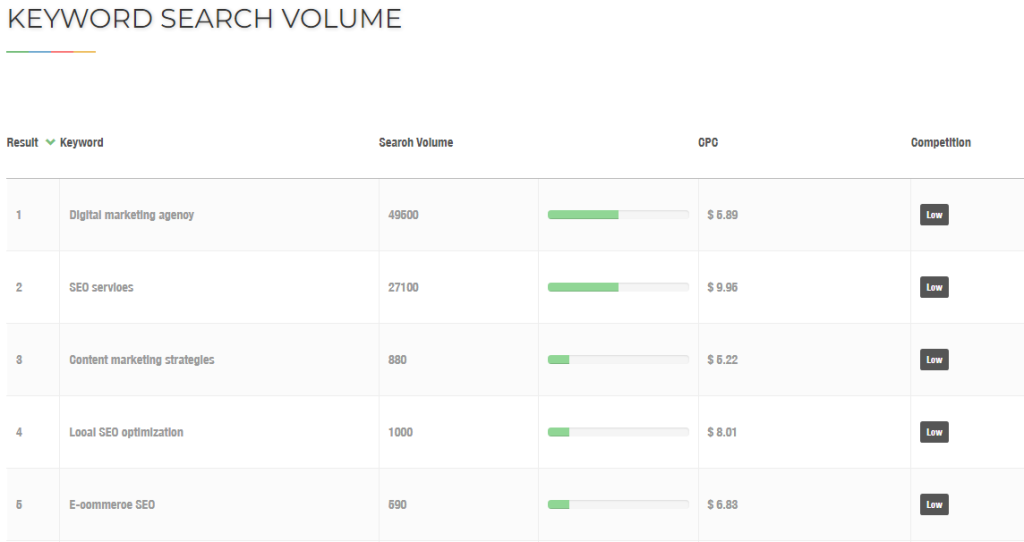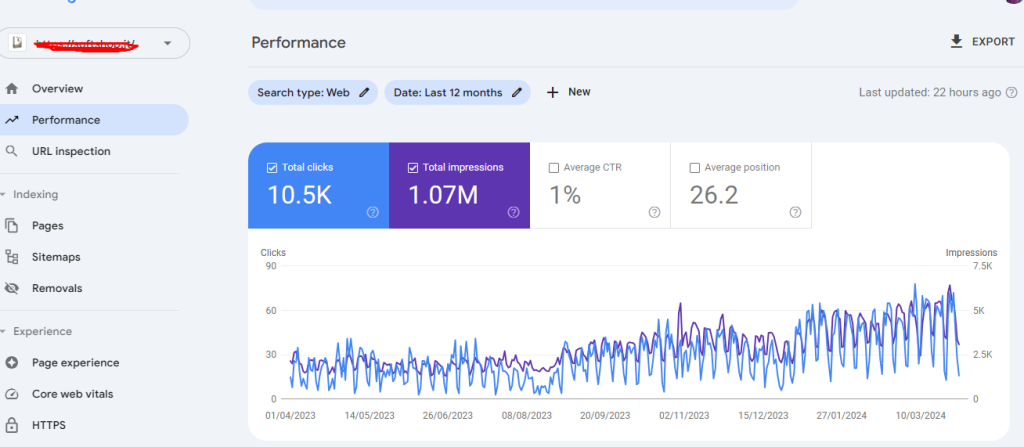Keyword Research for SEO Success

Introduction
Keyword research is the foundation of any successful search engine optimization (SEO) strategy. By understanding how people search for information online and strategically incorporating those keywords into your website content, you can improve your visibility in search engine results and attract relevant traffic to your site. In this article, we will delve into the essential steps and best practices for conducting effective keyword research to enhance your SEO efforts and achieve online success.
The Role of Keywords in Search Engine Optimization
Keywords are like the breadcrumbs that lead search engines to your content. They help search engines understand the relevance of your website to a user’s search query. In simpler terms, using the right keywords tells search engines, “Hey, this content is what people are looking for!
Benefits of Conducting Thorough Keyword Research
Imagine keyword research as your secret weapon in the SEO battlefield. By understanding what keywords your audience is using to search for content, you can tailor your website to match those queries. This can lead to higher organic traffic, better visibility in search results, and ultimately, more clicks to your website. It’s like giving your website a loudspeaker in the crowded online space.
Choosing the Right Tools for Keyword Research

Right Tools for Keyword Research
Popular Keyword Research Tools
There’s a whole toolbox of keyword research tools out there, from freebies like Google Keyword Planner to fancy paid ones like SEMrush and Ahrefs. These tools can help you uncover valuable insights about search volume, competition, and related keywords. Think of them as your trusty sidekicks in the quest for SEO glory.
Criteria for Selecting the Best Tools for Your Needs
When choosing your keyword research tool, consider factors like your budget, the type of insights you need, and how user-friendly the tool is. It’s like picking the perfect avocado – you want one that’s ripe, not too expensive, and easy to work with.
Identifying Relevant Keywords for Your Target Audience

Relevant Keywords
Defining Your Target Audience and Their Search Intent
It’s like throwing a party – you want to know who your guests are and what they’re looking for. Understanding your target audience and their search intent is key to finding the right keywords. Are they looking for information, ready to make a purchase, or just browsing? Cater your keywords to their needs like a cool host.
Strategies for Generating Keyword Ideas
From brainstorming sessions to spying on your competitors, there are countless ways to generate keyword ideas. You can also use tools like Google Trends or ask your audience directly. It’s like a game of treasure hunt – the more creative you get, the more golden keyword nuggets you’ll discover.
Analyzing Keyword Competition and Search Volume

Keyword Search Volume
Understanding Keyword Competition Metrics
Think of keyword competition like a sports match – the higher the competition, the tougher it is to rank for that keyword. Tools like Moz or SEMrush can help you evaluate the competition level for different keywords. Keep an eye out for those competitive keywords that can boost your SEO game.
Interpreting Search Volume Data for Keyword Selection
Search volume is like the popularity vote for keywords. High search volume usually means more potential traffic, but it also means tougher competition. It’s like choosing between a blockbuster movie or a hidden gem – both have their perks, but you need to find the right balance for your SEO strategy.5. Incorporating Long-Tail Keywords in Your SEO Strategy
Exploring the Value of Long-Tail Keywords
Long-tail keywords may sound like something you’d find on a mermaid’s shopping list, but they’re actually key to unlocking the hidden treasure of SEO success. These longer, more specific keyword phrases may not have the search volume of broad terms, but they often bring in higher-quality traffic that’s more likely to convert. Think of them as the niche bookshop to the big-box store of short keywords.
Tips for Finding and Using Long-Tail Keywords Effectively
To unearth these gems, delve into the minds of your target audience. Consider their pain points, questions, and specific needs. Tools like Google’s Keyword Planner, Answer the Public, or even just listening in on social media conversations can help you strike SEO gold. Once you’ve got your hands on these long-tail wonders, sprinkle them naturally throughout your content like seasoning on a gourmet dish – not too much, not too little, just enough to entice without overwhelming.
Refining Your Keyword List and Prioritizing Opportunities

Refining Your Keyword List
Tools and Techniques for Refining Your Keyword List
Ah, keyword lists – the bread and butter of any SEO strategy. But just like a fine wine, they need a bit of refining to truly shine. Utilize tools like SEMrush, Ahrefs, or even good old-fashioned brainstorming sessions to trim the fat and focus on the juiciest keywords for your specific goals. Look for relevance, search volume, and competition levels to separate the contenders from the pretenders.
Strategies for Prioritizing Keywords Based on Relevance and Potential Impact
Not all keywords are created equal, so it’s time to play keyword matchmaker and find the perfect fit for your content. Prioritize keywords based on their relevance to your target audience and goals, as well as their potential impact on your SEO efforts. Go for the low-hanging fruit with high search volume and low competition, but don’t shy away from the more challenging keywords that could pay off big in the long run.
Monitoring and Adjusting Your Keyword Strategy for Ongoing Success

Importance of Regular Keyword Performance Tracking
Just like a plant needs water and sunlight to thrive, your keyword strategy needs regular monitoring to stay healthy and strong. Keep a close eye on how your chosen keywords are performing – are they ranking well, driving traffic, and converting users? Tools like Google Analytics and Search Console can be your trusty garden tools in this ongoing quest for SEO greatness.
Strategies for Adapting Your Keyword Strategy to Algorithm Changes and Trends
Ah, the ever-changing landscape of SEO – like a game of musical chairs where the chairs are algorithms, and the music is Google updates. Stay nimble and ready to adapt by keeping an ear to the ground for industry trends and algorithm changes. When the winds of SEO change blow in a new direction, be prepared to adjust your keyword strategy accordingly. Remember, in the world of SEO, only the flexible survive – and maybe the ones with the best keywords too.
Conclusion
Mastering the art of keyword research is crucial for achieving SEO success and driving organic traffic to your website. By utilizing the right tools, understanding your target audience, and continuously refining your keyword strategy, you can improve your search engine rankings and reach a wider online audience. Stay proactive in monitoring keyword performance and adapting to industry trends to ensure long-term success in your SEO endeavors.
Frequently Asked Questions (FAQ)
Why is keyword research important for SEO?
Keyword research is essential for SEO as it helps you understand what terms and phrases your target audience is using to search for information online. By incorporating relevant keywords into your content, you increase the chances of your website appearing in search engine results and attracting organic traffic.
How do I choose the best keywords for my website?
To choose the best keywords for your website, consider your target audience, search intent, and competition levels. Utilize keyword research tools to identify high-volume, low-competition keywords that align with your content and business goals.
Can I rely on one keyword research tool, or should I use multiple tools?
While some keyword research tools may provide comprehensive data, it is beneficial to use multiple tools to cross-reference and validate your keyword choices. Different tools may offer unique insights and metrics, helping you make more informed decisions in your SEO strategy.
